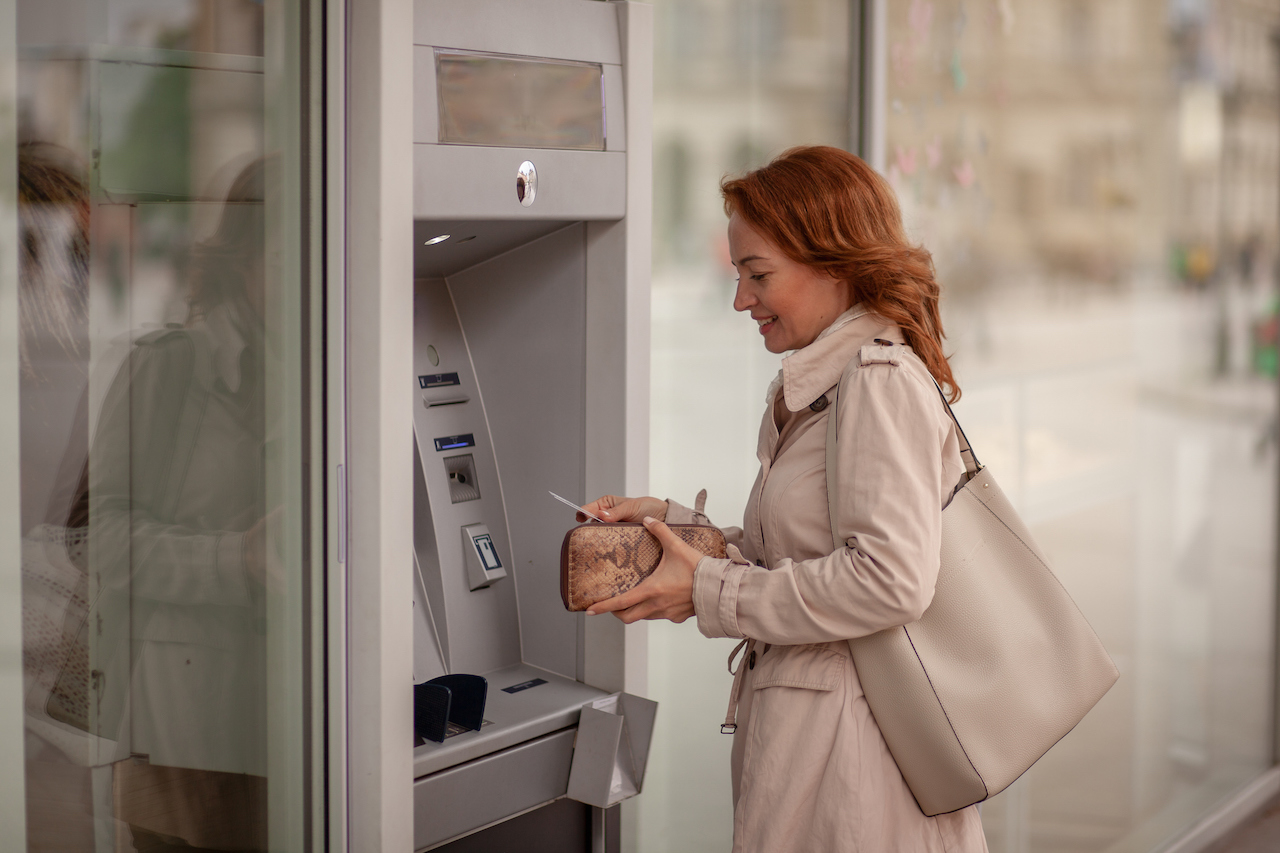If you’ve ever opened a bank account overseas and been hit with a million questions about your U.S. citizenship, you’ve met FATCA—whether you knew it or not.
Short for the Foreign Account Tax Compliance Act, FATCA was born in 2010 when the U.S. government decided it really, really didn’t want to miss out on taxes from Americans living abroad. Today, it’s why banks from Bangkok to Brussels ask if you’re a “U.S. Person” before they’ll even hand you a pen.
In 2025, FATCA is still very much alive—and it still matters. If you’re a U.S. taxpayer or an expat with foreign accounts, FATCA isn’t just paperwork; it’s a global web of reporting rules that ties your financial life to the IRS, no matter where you call home.
Ready to find out what FATCA actually means for you? Let’s dive in.
📋 Key Updates for 2025
- More foreign banks (especially in Europe and Asia) have joined FATCA reporting agreements.
- IRS audits are paying closer attention to foreign pensions and mutual funds.
- Streamlined Filing Compliance Procedures still offer a penalty-free path for catching up.
FATCA basics: What it does and who it affects
When Congress passed the Hiring Incentives to Restore Employment (HIRE) Act in 2010, tucked inside was a little-known piece of legislation called FATCA—the Foreign Account Tax Compliance Act. It sounded technical (because it was), but the mission was crystal clear: make it harder for U.S. taxpayers to hide income in offshore accounts.
Today, FATCA has grown into a massive global initiative. Thanks to a web of intergovernmental agreements (IGAs), foreign financial institutions (FFIs) around the world are now required to report U.S. account holders directly to the U.S. Internal Revenue Service (IRS)—sometimes even before you get around to filing your own tax return. (No pressure.)
If you’re a U.S. citizen, green card holder, or resident alien with foreign financial accounts, FATCA could very much apply to you. And it’s not just about secret bank vaults in Switzerland anymore—ordinary accounts in Canada, Europe, and Southeast Asia are often caught in the net too.
Under FATCA, FFIs must:
- Report account balances and account information for all U.S. persons
- Register for a Global Intermediary Identification Number (GIIN) to stay compliant
- Perform extra due diligence to verify account ownership and tax residence status
Meanwhile, on the IRS side, this treasure trove of automatically exchanged information helps uncover undeclared income and ensure income tax compliance. It’s part of a wider government strategy to clamp down on offshore tax evasion and strengthen international tax law initiatives.
💡 Pro Tip:
If you have a foreign bank account, mutual fund, or investment abroad—even if it's just your retirement savings—you need to know how FATCA affects you. The cost of non-compliance isn’t cheap, and neither is fixing it after the fact.
Who has to file under FATCA?
Short answer? More people than you might think.
FATCA filing requirements apply to a wide range of U.S. taxpayers—not just those living stateside. If you’re a U.S. citizen, green card holder, or resident alien living abroad, there’s a good chance FATCA has its eye on you. Even some non-resident aliens are swept in, depending on their connection to U.S. financial interests.
Here’s how it works:
- If you own specified foreign financial assets (think foreign bank accounts, brokerage accounts, mutual funds, and certain investments held through foreign entities) over a certain threshold, you need to file.
- Thresholds vary based on your tax residence and filing status. For example: If you’re a single expat, you must file if your foreign assets total more than $200,000 at the end of the year—or $300,000 at any time during the year.
To meet your FATCA obligations, you’ll typically need to file Form 8938 alongside your regular income tax return. (Yes, even if you owe no actual tax.)
This is important to remember:
- FATCA doesn’t just look at individuals. If you own interests in foreign entities or are involved with non-financial foreign entities (NFFEs), additional reporting may be required depending on ownership and control.
- The Department of the Treasury and tax authorities around the world use automatic exchange of information to monitor accounts, cross-check reporting, and flag discrepancies.
Translation: If your name—or even your signature authority—is linked to money abroad, FATCA wants a closer look. And if you skip filing? That’s when the IRS gets extra interested.
What are Specified Foreign Financial Assets?
Not all foreign assets are created equal—at least, not in the eyes of FATCA.
Specified foreign financial assets include things like:
- Foreign bank accounts (checking, savings, you name it)
- Foreign mutual funds (even if they’re small)
- Foreign stocks (held outside a U.S. brokerage)
- Foreign trusts and foreign pensions
In short: if it feels like money or an investment and it’s sitting abroad, there’s a good chance it needs to be reported.
What’s not included?
- Foreign real estate—but (and this is a big but) only if you hold the property directly. If you own real estate through a foreign entity (like a corporation or partnership), guess what? That does become reportable.
FATCA vs. FBAR: Don’t mix them up
It’s easy to confuse what gets reported under FATCA (Form 8938) versus the FBAR (FinCEN Form 114), especially because they both deal with foreign assets. Here’s the quick cheat sheet:
- FATCA cares about the value of all your specified financial assets combined.
- FBAR is more narrowly focused on foreign bank accounts where the total value exceeds $10,000 at any point during the year.
If you’re unsure whether your assets trigger a filing requirement, it’s a smart move to check the official U.S. tax resources at IRS.gov and Treasury.gov. These sites (and a great CPA!) can help make sure you’re compliant with all the rules.
FATCA vs CRS: Global reporting systems compared
You might think FATCA sounds intense—and it is—but it’s not the only game in town. Meet its international cousin: CRS, short for Common Reporting Standard.
Here’s the key difference:
- FATCA is U.S.-specific and based on citizenship. If you’re a U.S. citizen, a green card holder, or otherwise considered a U.S. taxpayer, FATCA follows you everywhere—even if you haven’t set foot on U.S. soil in years.
- CRS is residency-based. Over 100 jurisdictions have adopted CRS, and it focuses on where you live, not where you’re from.
In practice?
Both FATCA and CRS require financial institutions to report information about certain reportable accounts to tax authorities—and those authorities often share the information across borders under automatic exchange of information agreements.
💡 Pro Tip:
If you’re a U.S. citizen living abroad, you could be under both systems at once: FATCA because of your citizenship, and CRS because of your residency. That’s double the paperwork (and double the motivation) to stay on top of your tax obligations.
How FATCA impacts U.S. expats and dual citizens
If you’re a U.S. citizen living abroad—or even just accidentally American—FATCA can feel like the tax world’s version of a clingy ex. It follows you. It asks questions. And it gets your bank involved.
For expats, dual citizens, and Accidental Americans, FATCA has introduced some frustrating real-world consequences. The most common?
- Foreign bank account closures (some financial institutions simply don’t want the hassle)
- Extra documentation and identity checks
- Invasive reviews of accounts involving power of attorney, especially when multiple nationalities are involved
In many cases, non-U.S. banks and financial services providers must comply with FATCA reporting obligations—even if doing so conflicts with local privacy laws. This has created tension in some non-U.S. jurisdictions, where individuals are being asked to disclose their U.S. status or risk losing access to their accounts altogether.
Add to that the potential for withholding tax penalties if banks don’t comply, and it’s easy to see why FATCA regulations have become such a hot topic among the globally mobile.
Long story short: Even if you haven’t lived in the U.S. for decades, FATCA can still affect your ability to bank, invest, and plan your financial future with peace of mind.
FATCA reporting requirements: What to know
If you meet the asset threshold under FATCA rules, you’ll need to file Form 8938 along with your federal tax return—no skipping it, no “oh, I didn’t know!” excuses. (The IRS has heard them all.)
Here’s the quick version:
- Form 8938 reports your specified foreign financial assets if their total value crosses certain thresholds (e.g., $200,000 for single filers living abroad).
- You might have to file both FATCA (Form 8938) and FBAR (Report of Foreign Bank and Financial Accounts)—they’re separate forms, with separate rules, but sometimes overlapping information.
And if you forget? Penalties can get steep:
- Up to $10,000 for the initial failure to file
- Additional penalties for continued noncompliance
- In extreme cases, even criminal charges if noncompliance looks intentional
The IRS isn’t flying blind here. Thanks to FATCA agreements with foreign countries around the world—and access to GIIN (Global Intermediary Identification Number) registries—they have a global information network ready to flag any missing pieces.
💡 Pro Tip:
If you have reportable foreign assets, staying ahead of your FATCA obligations isn’t just smart—it’s necessary.
What if you haven’t complied with FATCA?
First things first: breathe. If you realize you’ve missed a FATCA filing (or two, or three…), you’re not alone—and you’re not doomed.
The IRS understands that many non-willful taxpayers simply didn’t know about their obligations. That’s why they offer Streamlined Filing Compliance Procedures, a special amnesty program that lets you catch up without facing the harshest penalties.
Here’s what you’ll typically need to do:
- File any missing income tax returns and Form 8938 forms for the relevant years
- Include a reasonable explanation for why you failed to file on time
- Certify that your noncompliance wasn’t intentional
It’s highly recommended (read: almost essential) to work with an expat tax professional if you’re going through this process. They can help you avoid common mistakes, make sure you’re submitting everything correctly, and guide you through the IRS’s maze of forms and programs—like the voluntary disclosure program, if your situation is more complex.
💡 Pro Tip:
Honest mistakes can usually be fixed. But the sooner you act, the more options (and peace of mind) you’ll have.
FATCA isn’t going anywhere—but you can stay ahead
FATCA may sound complicated, but it really comes down to this: if you have foreign assets, the IRS wants a postcard.(And they don’t take late ones lightly.)
Staying compliant is non-negotiable—but it doesn’t have to be stressful. At Bright!Tax, we specialize in helping U.S. expats untangle FATCA filings, streamline paperwork, and sleep easier at night.
Let’s make FATCA one less thing on your plate. Reach out today and let’s tackle it together.
Frequently Asked Questions (FAQs)
-
What is FATCA?
FATCA (Foreign Account Tax Compliance Act) is a U.S. law that requires Americans to report certain foreign financial assets to the IRS—and requires foreign banks to report them too. It’s all about making sure taxpayers aren’t hiding income overseas.
-
Who needs to comply with FATCA?
If you’re a U.S. citizen, green card holder, or certain non-resident aliens with specified foreign financial assets over the reporting thresholds, FATCA likely applies to you. Even if you live abroad full-time, you’re still on the IRS’s radar.
-
What’s the difference between FATCA and FBAR?
Both involve reporting foreign financial accounts, but they’re not the same.
- FATCA reporting happens on IRS Form 8938 with your tax return.
- FBAR reporting happens separately on FinCEN Form 114.
Many expats end up needing to file both.
-
What are the penalties for not filing under FATCA?
Failure to file Form 8938 can trigger a $10,000 penalty—plus more if the IRS keeps uncovering problems. Filing on time saves you serious money (and spares you serious headaches).
-
How do I know if my foreign assets meet the FATCA thresholds?
It depends on your filing status and where you live.
- Living abroad and single? You must file if your specified foreign assets are over $200,000 at year-end.
- Married filing jointly abroad? The threshold is $400,000.
Different thresholds apply for U.S. residents.
-
What types of accounts and assets must be reported under FATCA?
More than just bank accounts:
- Foreign bank and brokerage accounts
- Foreign mutual funds and stock
- Foreign pensions and certain life insurance policies with cash value
Directly owned foreign real estate doesn’t need to be reported under FATCA—but real estate owned through a foreign entity might.
-
Does every foreign bank comply with FATCA?
Nearly all major banks do. Thanks to intergovernmental agreements (IGAs) between the U.S. and other governments, foreign financial institutions worldwide are sharing U.S. account information with the IRS.
-
What should I do if I’m unsure about my FATCA obligations?
You’re not alone—FATCA can get complicated fast. That’s where Bright!Tax comes in. Our international tax experts specialize in helping U.S. expats navigate FATCA, FBAR, and everything in between. We’ll make sure you’re fully compliant without the stress.

 Connect on LinkedIn
Connect on LinkedIn

